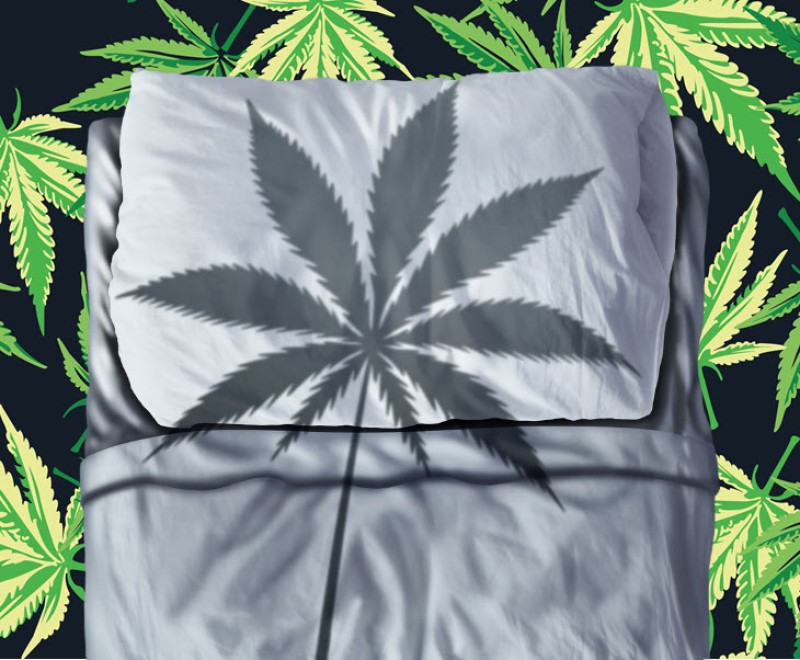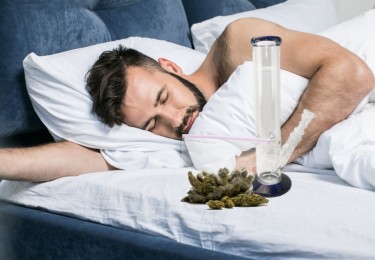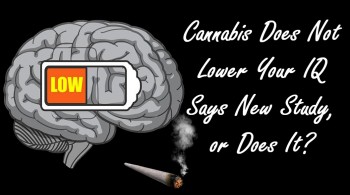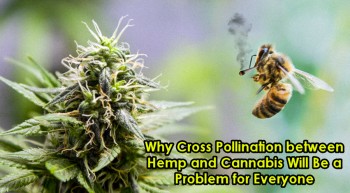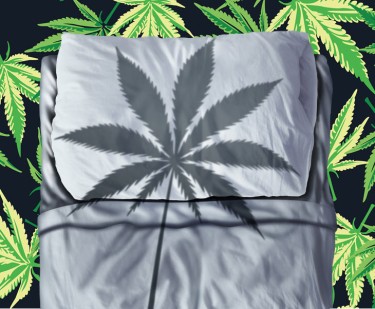
Sleep is crucial for ensuring your mental and physical welfare. However, many grown-ups still experience difficulty sleeping.
According to the American Sleep Association, one-third to half of all adults in the USA (between 50 and 70 million) have difficulty sleeping. Statistics show that 40 million Americans have insomnia, and 10 to 15% of adults suffer from chronic insomnia.
If you find it increasingly challenging to catch some shut-eye, you are not alone. With so many people experiencing sleeping disorders, there's been a rise in interest in one controversial cure: cannabis. Understanding the different administration routes, such as smoking, vaporizing, edibles, and topical applications, will help you make an informed decision regarding your choice of delivery method.
According to Dr. Matt Roman, a medical marijuana physician, cannabis is a natural sleep aid because it can help restore the normal sleep cycle, which revolves around the circadian rhythm, which wears out because of the modern-day pace of life.
If you struggle with a sleep disorder or find it hard to sleep after a tough day, cannabis could be an option. The pain-relieving effects of marijuana might help ease chronic pain. At the same time, its anti-anxiety properties can calm a stressed mind and body.
The Science of Cannabis-Induced Sleep
The compounds found in different strains of marijuana may vary. While some are more stimulating, others are soothing and sleep-inducing, based on the type and mixture of cannabinoids.
Let's start with a brief overview of the science behind marijuana. This plant works its magic thanks to various cannabinoids, with two being particularly common:
-
Cannabidiol (CBD): CBD has a wide range of medical uses and is non-psychoactive, which means that it will not get you "high."
-
Tetrahydrocannabinol (THC): A psychoactive cannabinoid that triggers the "high" effect.
Based on a 2008 studyTrusted Source, healthy users who smoke strains that contain higher THC levels usually don't get as much REM sleep as compared to those who don't. With the reduced amount of REM sleep, dreams are suppressed. In situations where one experiences PTSD, it means nightmares also decrease.
The idea is that when you cut down on dream time, you will have more time for a "deep sleep." The deep sleep stage is usually considered the most rejuvenating part of the sleep mode, allowing deep revitalization and relaxation.
However, REM is also essential for the proper functioning of the cognition and immune system. Thus, prolonged use of marijuana with a THC concentration higher than 20% could impair your sleep quality.
However, this doesn't apply universally. Certain studies indicate that frequent marijuana use could indeed disrupt sleep. It's clear that cannabis alters sleep patterns but one uncertain thing is to what degree.
Be sure to consider those points that may affect you before you feel like trying cannabis.
Factors To Consider Before Trying Out Cannabis
-
Any smoking is a health risk that should not be taken lightly.
-
Talk to your doctor about your sleeping patterns. Interrupting REM frequently may have long-term health consequences, as many of the immune system's repair actions take place during deep sleep.
-
Chronic use of any sleep aid agent is not advisable.
-
Please use marijuana responsibly. If you smoke, your chances of having COPD increase. Like cigarette smoking, smoking can increase the risk of COPD.
-
Marijuana smoking is harmful to the lungs, similar to cigarette smoking, and this is dangerous, especially to persons with asthma or other respiratory conditions.
-
Using marijuana while pregnant and breastfeeding isn't advised.
How To Use Cannabis for A Good Night's Rest
People usually smoke marijuana as joint or with a pipe. If you don't like smoking, want to protect your lungs, or don't fancy its specific smell, try vaporizers or high THC tinctures, such as Secret Nature THCA, which are placed under the tongue. Both methods are popular ways to consume cannabis for sleep.
Next is determining how much marijuana to use. It could require some small-scale trial-and-error to determine the precise dosage. So, don't attempt this during office workdays! If you do smoke or vape, you will be better off savoring a few puffs at first.
Even a small amount can have a huge benefit. Don't use too much, as oversleeping causes one to wake up feeling tired the next morning. If you need to take a second dose in the middle of the night, that's okay. However, you should avoid re-dosing if you wake up less than four hours before you need to be up.
Pay attention to what effects you experience once you start smoking. One could feel entirely differently, ranging from a slight sense of happiness to an impression of time slowed to intensified feelings like dry mouth.
Timing Your Intake for Bedtime
The right time is just as important as the right Cannabis when it comes to having a good night's sleep. The issue with edibles is that the timing of their effects can be unpredictable. Sometimes, it takes about an hour, while other times, it might take two to three hours.
Furthermore, its effects can last longer than expected and lead to morning grogginess. Due to the way cannabis is metabolized in our gut and liver, its duration of action can extend to 8 to 12 hours.
Since everyone's body reacts differently, it's generally recommended to consume marijuana at least an hour before bedtime. This timing is optimal because the effects of cannabis typically last for about three to four hours, assisting in falling asleep. This approach ensures that individuals don't experience the effects just as they're about to sleep, which could lead to heightened excitability and hinder sleep.
Conclusion
It's important to recognize that not all sleep aids affect everyone in the same manner, and marijuana is no exception. Roman cautions that individuals with recent heart attacks or poor cardiovascular health should avoid cannabis use due to the heightened risk of myocardial infarction.
Additionally, although cannabis is frequently utilized to alleviate anxiety, some individuals discover that strains with high THC content increase their feelings of anxiety or paranoia.
If you're among those who experience heightened anxiety from certain strains, consider experimenting with different varieties or informing your dispensary about your preferences when selecting strains. You may find that an alternative strain can promote sleep without exacerbating your anxiety.
